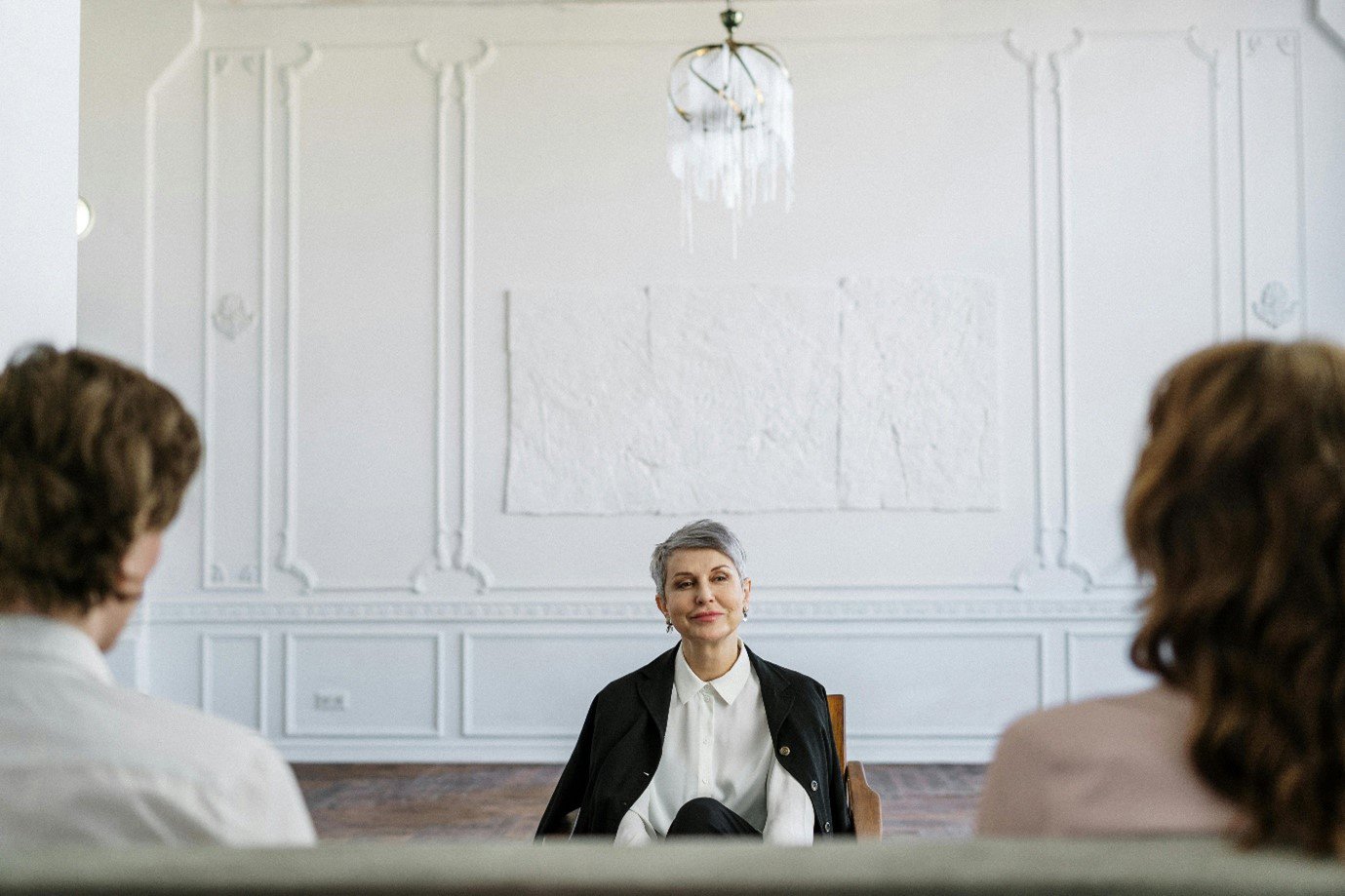Mental Health Risks of Divorce
Many reports and studies suggest that divorce and separation lead to an increased risk of mental health issues, such as anxiety and depression.
On average, around 28% of divorced people experience depression and 51% of people feel isolated or lonely.
The UK divorce rate is currently at around 42%, so if everyone who’s going through a divorce or separation is more likely to experience mental health problems, that’s a lot of people who may need support.

Tips to staying emotionally healthy throughout your divorce.
Understand Your Divorce
Thinking about the reasons why you’re getting a divorce might be the hardest part of the process. But it’s important to know why you’re splitting up, not only to quote one of the grounds for divorce in your application, but also so you can process the divorce emotionally.
It’s important not to play the blame game here. If one of you had an affair, or you’ve simply grown apart, it’s important to understand why - have either of you changed? Are you looking for different things in a marriage?
Seek to understand before you seek to be understood. Try and put things into perspective so you can see why you and your partner made the decisions you did to get to the point of divorce.
Allow Yourself Time
While it’s perfectly normal to feel like you need to get back on your feet as quickly as possible, this may just not be practical. Going through a divorce is a life-changing event that is going to cause some disruption to your day-to-day life and overall mental wellbeing.
Give yourself time to grieve and heal, don’t feel that you need to rush through the process. It’s perfectly natural to go through a whole host of emotions but the important thing is to allow yourself to feel them all and give yourself time and space to work through it.
Look After Your Health
It’s normal to feel lost or lonely during a divorce and this can result in you not looking after yourself as much as you did previously. But it’s important to stay as positive as you can and continue to look after yourself and your health as normal.
You should prioritise getting enough sleep and maintain a healthy lifestyle. While it may be tempting to occasionally overindulge be careful not to fall into bad habits or patterns, and try to take care of yourself.
You may also consider seeking professional help through a divorce counsellor. Divorce can result in a lot of negative emotions that need to be worked through, and a divorce counsellor will be able to offer you vital support during and after your divorce.
If you feel that it would be beneficial, you may also consider attending counselling together with your ex-partner. If you’ve been through a tough break-up, it may help to both speak on mutual ground where you can share openly about your thoughts and opinions on what happens next. Your counsellor may also be able to offer some advice on how to move forward and divorce amicably.
Manage Your Emotions
It’s very important to separate your emotions from the practical decisions you’ll need to make in divorce.
If you’re holding a lot of anger or guilt it might have an effect on the way, you handle things. For example, if your partner had an affair you might want to keep the family home as you feel they ‘owe’ you in some way. But if circumstances mean that it would make more sense for them to remain in the property, then it’s vital you don’t let your emotions cloud your view.
By taking responsibility you’ll be able to process these emotions so that you can take on the decision-making process with a logical outlook. This means you’ll be able to reach decisions quickly and with less animosity.

Put Your Children First
Divorce can get messy if there are more than just the two of you involved. It’s important that no matter how the relationship broke down, you put your children’s best interests first.
The idea of being less present in your children’s lives might worry you, but it’s important to be fair with your ex when dividing childcare. Having a healthy relationship with both parents is almost always the best option for children.
Our Divorce Solicitors can work with you to put childcare arrangements in place if you and your ex can’t come to an agreement. For instance, we can help you to determine who should remain in the family home, or if selling the home is the best option for you. We can also help you to consider visitation and how this could work with sharing responsibility and time with your children.
Be Willing to Compromise
You may wonder why your partner cannot see things from your point of view, but the likelihood is they’re thinking the exact same thing about you. Compromising on things that you want easy. But it’ll move the divorce process along much more quickly.
Remember that there are two people involved in your divorce and that means you’ll have to divide assets fairly. If you cannot come to an agreement with your ex because neither of you are willing to compromise, then the Court will decide for you so you might end up with less than you wanted in the first place.
Try and count your wins, not your losses. Of course, if you feel that your ex-partner is not being reasonable, we can discuss this with you and what we think the best way forward is for you.
Establish Boundaries
It’s important for you and your ex-partner to discuss setting healthy boundaries, which can help to reduce conflict and support you in finding a way forward while you’re re-shaping your life.
Decide what you feel is acceptable in regard to communication and visits and agree on how to make sure you both stick to the plan. For instance, you may not wish to hear from your ex-partner at all unless it’s directly relating to your children such as arranging visits or doctor appointments.
Get Support from Friends and Family
While our Divorce Solicitors can offer you as much legal advice as you need, it’s important that you get personal advice too. When one relationship breaks down, try and lean into the other healthy relationships you have in your life.
Family and friends can provide you with stability and reassurance in this stressful time. Identify your support network and focus on strengthening those relationships rather than trying to salvage one that’s been and gone.
Plan for Your Future
One of the common emotions that comes with divorce is a feeling of grief or loss. While your relationship may have ended, try and see your divorce as a new beginning. When the divorce is finalised, you might have a lot more time for yourself, which is a great opportunity for self-growth.
Set goals for the future - what do you want to achieve? Today is the first day of the rest of your life. Take all the energy you were putting into your marriage and put it back into yourself.

Speak to a Divorce Solicitor
Above are just a few tips on how to stay emotionally healthy through divorce, but one thing you might still be unsure about is the legal side of things. We can help you.
Our Divorce Solicitors are experts in the divorce process and can handle your whole divorce case or just advise you where you need it. Whether you just need help with a few queries relating to your divorce or you would like us to oversee the entire process, we’re here to help in any way that we can.
We are accredited by the Law Society and have helped many people just like you to get the best divorce settlement possible.
We will always be transparent about our fees, and we offer a Fixed Fee Divorce service which may suit your situation. Our national team of Divorce Solicitors and Lawyers have dealt with thousands of divorce cases, and we can help you to diffuse tension and resolve conflict if you and your ex cannot agree on the terms of your divorce.
We’ll always work with you and have your best interests at heart, so you can rest assured that we are there to support you the entire way.












